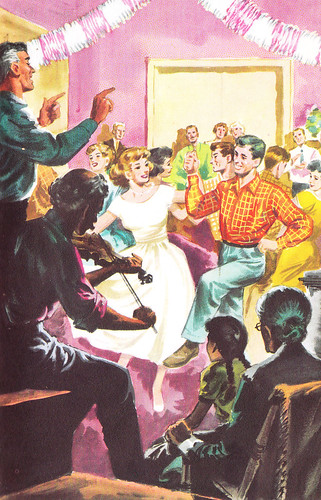It’s Wednesday, and that means two things: the week is halfway over and it’s time for Word Buzz Wednesday! This week: Spring Festival cleaning; a freaky cloud-formation; and a fauxpology about a racist word.
da sao chu
“One of the biggest Lunar New Year traditions in China — besides the red envelopes and parades — is the house-cleaning ritual, known as da sao chu.”
Venus Wong, “15 Traditional Cleaning Tricks You Never Knew,” Refinery29, February 19, 2015
Da sao chu (大扫除) translates from Chinese as “big clean-up.” Da sao, where da has the first tone, translates as “big sweep,” perhaps a pun of da sao (打扫), where da has the third tone. In this case da sao means simply “to sweep.” Using homophones to make puns and wordplay is common in Chinese.
As for da sao chu, like many Lunar New Year traditions, it’s about luck — in this case, as Refinery29 says, “sweeping out the bad luck and welcoming the future with open arms.”
Doves Type
“Green has spent years researching the Doves Press type—he even redrew it, after thousands of hours of painstaking research work, and published his revival in 2013 as a digital typeface called the Doves Type that anyone can buy.”
Kelsey Campbell-Dollaghan, “The Gorgeous Typeface That Drove Men Mad and Sparked a 100-Year Mystery,” Gizmodo, February 16, 2015
Doves Type, or the Doves Typeface, was developed by Doves Press, a London private press established in the late 19th century by artist and bookbinder T. J. Cobden-Sanderson. The press was named for a nearby pub, The Dove.
Cobden-Sanderson, says Gizmodo, was “a driving force in the Arts & Crafts movement in England,” and “championed traditional craftsmanship against the rising tides of industrialization.” Because he was afraid his typeface “would be sold to a mechanized printing press after his death by his business partner,” he ended up throwing the metal type into the River Thames.
However, this past November, at the behest of designer Robert Green, a group of ex-military divers somehow found the tiny bits of metal, resurrecting the previously lost type.
hole punch cloud
“The clouds made it seem like something supernatural was going on, but in reality was just a combination of a few events that lead to what many refer to as a ‘fallstreak’ or ‘hole punch cloud’.”
Scott Sutherland, “We explain: Strange cloud formation over southern British Columbia,” The Weather Network, February 23, 2015
A hole punch cloud is also known as a fallstreak hole, “a large circular or elliptical gap that can appear in cirrocumulus or altocumulus clouds.”
The Weather Network says such a phenomenon is known as a fallstreak hole because “the water in that region of the cloud is falling to earth, producing those pronounced streaks it does, and leaving behind a hole in the cloud,” and it occurs when “tiny ice crystals” are introduced into the cloud layer and these crystals are suddenly “ ‘mobbed’ as the water droplets rush in to freeze and help form larger ice crystals,” which forms the streaks and “sucks up a lot of the surrounding droplets, tearing a hole in the cloud.”
For more cloud words, check out this great list.
jigaboo
“It’s believable that Cleveland’s Fox 8 news anchor Kristi Capel didn’t know that ‘jigaboo’ was an old racial slur against African Americans. . . .What’s less clear is why, when she wanted to describe Lady Gaga’s music on live television, she decided to use a word she didn’t understand.”
Jenée Desmond-Harris, “News anchor who said ‘jigaboo’ on air proves you really shouldn’t use words you don’t know,” Vox, February 23, 2015
Jigaboo has been used as a racial slur referring to a black person since 1909, says the Online Etymology Dictionary. The word might be a combination of jig, a lively dance, and bugaboo, a source of fear or anxiety. Vox says jigaboo was often linked to minstrel shows, which featured white actors in blackface.
By the early 1920s, the word jig had also become an offensive term for an African American, according to the Oxford English Dictionary (OED), perhaps as a shortening of jigaboo or referring to the dance.
For the record, Capel fauxpologized for using jigaboo.
jizya
“Exempted from automatic execution, it appears, are Christians who do not resist their new government. Baghdadi permits them to live, as long as they pay a special tax, known as the jizya, and acknowledge their subjugation.”
Graeme Wood, “What ISIS Really Wants,” The Atlantic, March 2015
Jizya is, according to the Washington Times, “the money, or tribute, ‘that conquered non-Muslims historically had to pay to their Islamic overlords ‘with willing submission and while feeling themselves subdued’ to safeguard their existence.” The term jizya is derived from the Arabic word for “reward.”
Baghdadi, or Abu Bakr al-Baghdadi, is the caliph of the Islamic State.
[Photo via Flickr, “Atlantis?” CC BY 2.0 by Tom Bech]





